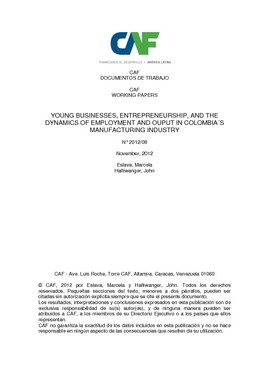Transportation infrastructure and productivity: evidence from Colombia
Resumen
This paper analyses the role of transport infrastructure in determining plant level TFP. We calculate TFP from the annual manufacturing surveys using accounting and econometric procedures. We find that differential access to transportation infrastructure is an important determinant of TFP at the plant level. In particular, growth in road density (kilometers of roads around the plant) has a positive impact on TFP growth, while growth in congestion (traffic per day) is negatively related to TFP growth. After correcting for potential endogeneity, our estimates suggest that the elasticity of TFP with respect to the stock of roads is approximately one. In addition, we analyze the effect of infrastructure on the level and of dispersion of TFP and find that markets with better infrastructure are also more contested. This means that TFP across plants shows less dispersion and higher minimum and median values. In other words, only the more efficient producers survive, suggesting a possible channel trough which infrastructure contributes to the overall efficiency of the economy.
Materia
País / Región
Fecha
2008Citar de esta publicación
Item perteneciente a la Colección
Autor
Cárdenas, MauricioSandoval, Carlos Eduardo
Items Relacionados
Young businesses, entrepreneurship, and the dynamics of employment and ouput in Colombia´s manufacturing industry
In this paper, we study the characteristics and growth dynamics of young businesses, and the contribution of these businesses to aggregate growth, in a ...




